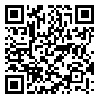BibTeX | RIS | EndNote | Medlars | ProCite | Reference Manager | RefWorks
Send citation to:
URL: http://rjms.iums.ac.ir/article-1-1281-en.html
Background and Aim: Nephrotoxicity is the most important and the most frequent adverse effect of Aminoglycosides, which restricts its usage despite its availability and effectiveness. It seems that
L-carnitine with an inhibitory effect on free radical production and some antioxidant effect, may have a supportive role against the potential renal damage due to ischemia. The recent study was designed to compare the serum ACE and serum and urine NAG activities in patients on L-carnitine and Gentamicin treatment with the control group.
Materials and Methods: The recent study is a randomized clinical trial conducted on patients admitted in the Orthopedic ward of Hazrat-e-Rasool Akram hospital in 2006. Sixty-four patients were allocated randomly to the case and control groups. The control group received 80 mg of intravenous (IV) Gentamicin, three times a day for 3 days. The case group was under the same treatment plus 1 gram of oral L-carnitine, for 3 days, three times a day. Serum ACE and serum and urine NAG activities were compared within the two groups. Data were analyzed using SPSS V.11.05 software ,Paired sample t-test, Independent sample t-test and ANOVA.
Results: Serum and urine NAG activity on the first day showed no significant difference among the two groups, but there were significant differences at the end of the treatment period (4th day). Serum ACE activity in both the case and control groups showed no significant differences prior and after the treatment period.
Conclusion: The results of the recent study showed significant changes in serum and urine NAG activity during the short course of the treatment. These may show early renal tubular injury prior to any BUN and creatinine changes. On the other hand, although urine NAG activity in patients receiving L-carnitine showed an increase on the fourth day of treatment, but the increase is less than the control group. The above findings may support the supportive role of L-carnitine in tubular damages.





